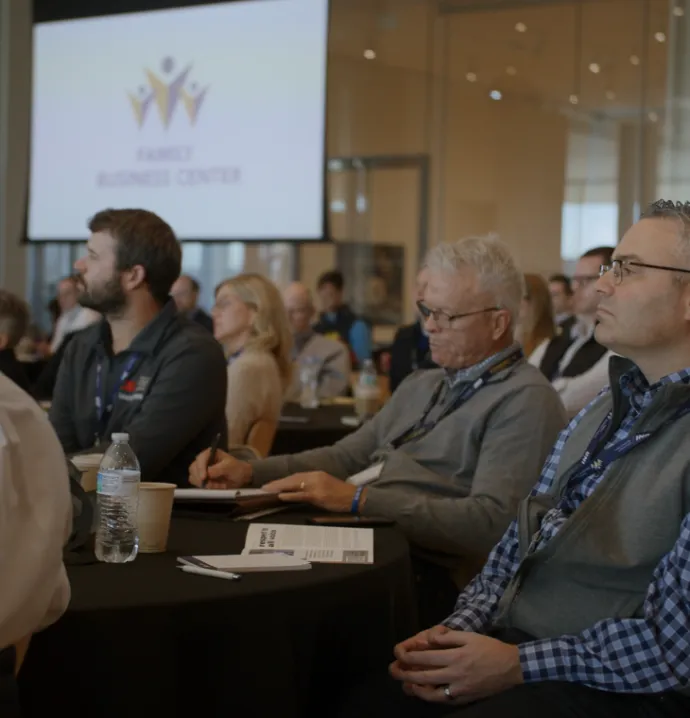Generational Stereotypes Poor Predictor
Generational Stereotypes Poor Predictor

For years defining and pigeon-holing generations has been a cottage industry. Some pundits have pitted generation against generation, including the condescending dismissal expressed by some contemporary young people: “Okay, Boomer.” Although I agree that changing technologies over the second half of the twentieth century (televisions, computers, cell phone, Internet, etc.), economic fluctuations, political, and other events have affected different generations in general ways, there are wide variations between individuals within each generation.
Within “My Generation,” as the Who sang, the second half of the Baby Boom (roughly 1955-64 out of the 1946-64 Baby Boom cohort) was very different from the earlier Boomers. My peers did not have to worry about the Vietnam War or the military draft. Very few of my peers were “turn on, tune in, drop out” hippies or Yippies. Even the pioneering Boomers were not predominantly counterculture. Many were similar to my older brother, working hard to get through college. His wife and he didn’t have the time (nor the inclination) to protest, although, for cheap entertainment, they would drive to Berkeley to watch the hippies.
I suspect my professors in the late 1970s thought the Boomers were slackers. Our work ethic probably paled compared with returning GIs from World War II, who used the GI Bill® to attain heretofore undreamed-of college degrees. Those veterans worked hard and frequently realized the “American Dream.” To be sure, the GI Bill® did little to help African-American veterans or women.
I’ll admit to being a slacker, before such behavior was popular. At least one of my professors actually asked, “Why did you quit working?” Another professor did not vocalize this, but I knew he thought I was lazy. I sailed through high school with scant homework (aside from completing the second year of high school accounting before the end of November; I was sick for a week and simply finished the course materials while at home). I was a National Merit Finalist. My high school teachers probably expected great things from me.
From my first day in an Honors College class, I quickly fell in with a bunch of like-minded National Merit Finalists and became class cut-ups. We didn’t flunk out, but we were certainly not stellar students. I majored in mathematics, because I couldn’t think of anything else (accounting would have been a smarter choice).
Even in graduate school, I was not the most diligent student, going on the ten-year plan for my PhD. I even dreamed once that my dissertation advisor looked at me and said, “You’re actually kind of lazy.” He said this without rancor, just as a statement of fact.
I do, on occasion, denigrate the Millennials and Gen Z, but I am fortunate enough to work with them. Many of them are far more motivated and diligent than I was in college. I marvel at their many accomplishments during four (and sometimes only three) years at UNI. They know what they want to do and have figured out how to achieve their goals. These students have my admiration and respect.
I am not alone in my observations regarding Gen Z. A recent article in the Wall Street Journal addressed the generational divide¹. The reporter identified several earnest, ambitious Gen Z workers. These younger workers might have differences in their work habits, but their overall work ethic and determination matched their older colleagues, who were sometimes dismissive of younger workers.
Another recent article asked, “Are you guilty of generational stereotyping²?” The author quoted Rachele Focardi, who made the sensible observation: “Generational diversity is nothing more than wanting to really understand what the world was like when that generation came of age that may influence that generation’s mindsets and behaviors.” For instance, I shudder to think what uses Boomers would have put smart phones and the Internet had we possessed such technologies during our youth.
Rather than excoriate each other, Boomers and the younger generation might benefit from recognizing similar (general) traits between the generations. Older Americans, whether out of envy or exasperation, thought the Boomers were pampered brats who were too soft to stand up to the “Commies.” Pundits thought television was contributing to Boomer youth being flabby. Boomers thought adults were hopelessly déclassé with regard to morality. “Don’t trust anyone over thirty” became the Boomers’ shibboleth. Today, I suppose, the Boomers might revise this to, “Don’t trust anyone under thirty!”
Boomers, especially the older ones, claimed they were going to remake the world into a more just place. I think we failed in many respects. Many of today’s youth believe they will make the world a more just place. I wish them well, but I suspect in fifty years, the youth of 2073 will view today’s Gen Z as hopelessly obsolete.
The views and opinions expressed are those of the author and do not imply endorsement by the University of Northern Iowa.
1) (Lindsay Ellis, “Your Gen Z Co-Worker Is Hustling More Than You Think,” April 11, 2023, https://www.wsj.com/articles/your-gen-z-co-worker-is-hustling-more-than-..., viewed April 12, 2023).
2) (Joanna York, Welcome to the Jungle, March 7, 2023, www.welcometothejungle.com/en/articles/are-you-guilty-of-generational-st..., viewed April 16, 2023)
"GI Bill®” is a registered trademark of the U.S. Department of Veterans Affairs (VA). More information about education benefits offered by VA is available at the official U.S. government website at www.benefits.va.gov/gibill.




